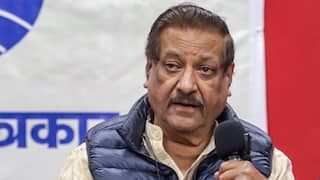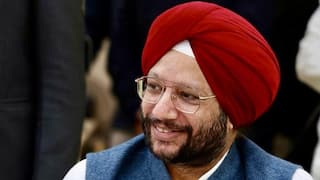Landmark Judgments That Shaped India's Journey As A Democracy
Independence Day 2022 Special: India's judicial system has rendered several historic decisions over the years. On the occasion of Azadi Ka Amrit Mahotsav, let's remember a few landmark judgments.

It has been 75 years since India started its journey of being a sovereign, socialist, democratic, republic. One of the greatest reasons why these 75 years have been a success for Indian democracy is our judicial system. There are various landmark judgments that our judicial bodies have made over the years. Let's remember a few landmark judgements on this special occasion of Azadi Ka Amrit Mahotsav:
Re-Berubari Case: Radcliff granted India territory in West Bengal's Jalpaiguri district known as Berubari, but sadly neglected to include it in his printed map. Pakistan started taking advantage of the circumstance and beginning to claim Berubari, a disagreement between India and Pakistan developed as a result.
The Nehru-Noon Agreement was established in 1958 to address this problem. Through this arrangement, it was decided that India and Pakistan would split the Berubari territory evenly. But the President decided to pursue the issue under Article 143 of the Indian Constitution and sought advice from the Supreme Court.
The Supreme Court held that Article 3 of the Indian Constitution prohibits the parliament from transferring any state's territory to another nation. Only after changing Article 368 of the Indian Constitution may Parliament take such action.
The 9th Amendment Act, which modified Schedule 1 of the Indian Constitution, had to be introduced by the parliament in 1960. The Berubari union was finally given to Pakistan under the terms of the Nehru-Noon Agreement.
I C Golaknath Vs State of Punjab Case: One of the most significant judgments in Indian legal history is 1967's Golaknath vs the State of Punjab. In this case, several other issues were brought up. The most crucial question, however, concerned whether or not the parliament had the authority to change the fundamental rights guaranteed by Part III of the Indian Constitution.
While the respondents said that our constitution's framers never intended for it to be rigid and non-flexible, the petitioners argued that the parliament lacks the authority to modify basic rights. The court ruled that the fundamental rights cannot be amended by the parliament.
In the 1973 case Kesavananda Bharati v. Union of India, this decision was overturned. In this case, the court ruled that while the parliament can amend the constitution, including the essential rights, it cannot change the constitution's core framework.
Kesavananda Bharati vs the State of Kerala: The head priest of the Edneer Mutt, a monastic religious organisation in Kerala's Kasaragod district, was Kesavananda Bharati. Bharati held some property in the Mutt. The Land Reforms Amendment Act was passed in 1969 by the Kerala state legislature. According to this Act, the government was permitted to purchase some of the Mutt's lands.
In March 1970, Bharati moved the Supreme Court (under Section 32 of the Constitution) to enforce the rights that were guaranteed to him under:
- Article 25: Right to practice & propagate religion
- Article 26: Right to manage religious affairs
- Article 14: Right to equality
- Article 19(1)(f): Freedom to acquire property
- Article 31: Compulsory acquisition of property
The 24th Amendment to the Constitution was completely legal, according to the court. However, it discovered that the first section of the 25th Amendment was against the law and that the second part was supra vires.
The Kesavananda Bharati case is significant for its ruling that the Constitution can be amended but not the basic structure.
A K Gopalan Vs the State of Madras: In the AK Gopalan case in 1950, the court narrowed the scope of Article 21 so that it now solely refers to the freedom of the individual's body. The Preventive Detention Act of 1950 is constitutional and does not infringe any fundamental rights, according to the court, which even limited the application of Article 19.
Maneka Gandhi Vs Union of India, 1978: Following this ruling, the "post decisional theory" concept developed. The court concluded that it is insufficient for a statute to simply exist. Such legislation must also be righteous, equitable, and reasonable. As a result, the court's liberal interpretation of Article 21 resulted in the inclusion of "due process of law" and "method established by law."
"Method established by law" denotes the requirement that the proper procedure is followed in the creation of any law passed by the legislature or other similar authority. "Due process of law" refers to a government's obligation to uphold and respect a person's legal rights.
Indira Nehru Gandhi Vs Raj Narain Case: A famous case that changed the course of history and brought about India's declaration of the Emergency from 1975 to 1977. It is the case that called into question the judiciary's authority and served as a demonstration of how Parliament expected the court system to submit to them. In this instance, Parliament attempted to assert its primacy, but the judiciary overruled it.
In this case, the Constitution's fundamental structure, court jurisdiction, the separation of the three branches of government—the legislative, executive, and judicial—as well as the right to free and fair elections, the rule of law, judicial review, and political justice were all called into question.
S R Bommai Vs Union of India, 1994: This case examines the constitutional requirements on central-state relations, the legal method, and the disputed function of state governors in calling for the president's rule. The States are not considered to be insignificant appendices to the Center simply because under the system of our Constitution tremendous power is discussed upon the Center vis-à-vis the States.
Within the spheres that are given to them, the States possess the greatest strength. The Center is unable to control its powers. The arbitrary expulsion of State Governments under Article 356 has been ended by this judgment, which is recognised as a significant judgment. The ruling made the assumption that the president's power is not absolute but rather customary, and that the presidential declaration does not exempt it from judicial scrutiny.
Mohd Ahmed Khan Vs Shah Bano Begum, 1985: Even though it took the court a while to reach its decision, dismissing the appeal upholds the people's trust in the legal system and is, therefore, a historic decision. This ruling has highlighted the need for maintenance payments that should be made to divorced Muslim women who are unable to support themselves financially.
The Shah Bano decision drew a lot of criticism from authoritative authorities who opposed it since it went against Islamic law's precepts, but the SC ultimately upheld citizens' faith in justice by issuing an impartial ruling.
This resulted in the 1986 passage of the Muslim Women (Protection of Rights on Divorce) Act, which allowed Muslim women to receive a sizable lump sum payment from their husbands during the Iddat period instead of the previously permitted maximum monthly payment of Rs 500.
Navtej Singh Johar Vs Union Of India, 2018: It was one of the Supreme Court's most significant precedent-setting rulings regarding the LGBTQ community's right to equality, which the laws of the Victorian era had denied them. Discrimination against a person based on their sexual orientation is gravely offensive to that person's dignity and sense of self-worth. The community deserves the same rights and respect as any other person.
The SC struck down the 158 years old law on homosexuality that made carnal intercourse against the order of nature a criminal offence. The court overruled its previous judgment given in the Suresh Kaushal case and declared Sec 377 unconstitutional as it violated Art 14,15,19 and 21 of the Constitution.
Indira Sawhney Vs Union of India Case: Also known as Mandal Commission Case. Landmark Case on Reservation of other backward classes. According to the ruling of the Union of India, promotions cannot use reservations. The 1992 ruling in Indra Sawhney & Others v. Union of India established the boundaries of the state's authority; it affirmed the 50 per cent quota cap, underlined the idea of "social backwardness," and provided 11 metrics to measure it.
M Siddiq (D) Thr Lrs vs Mahant Suresh Das & Ors (The Babri Masjid-Ram Janambhoomi Case): The Supreme Court mandated that a trust be established by the Center to regulate temple building. Additionally, it instructed the government to give the Sunni Waqf Board a five-acre plot in a prominent area of Ayodhya so that it can build a mosque. The five-judge Constitution bench of the Supreme Court led by the now-retired Chief Justice of India Ranjan Gogoi stated that the land in Ayodhya where the Babri Masjid once stood belongs to Ram Lalla.
This decision was made on November 9, 2019. The court's decision put a protracted legal dispute to rest and opened the route for the imposing Ram Mandir to be built. The Supreme Court mandated that a trust be established by the Center to regulate temple building.
Shreya Singhal Vs Union of India: In the case of Shreya Singhal v. Union of India, a bench of Justices J. Chelameswar and R.F. Nariman ruled on March 24, 2015, declaring Section 66A unconstitutional for "violating Article 19(1)(a) and not being saved under Article 19 (2)."
Since the law had previously been ruled unconstitutional on substantive grounds, the Court declined to hear the Petitioners' claim of procedural unreasonableness.
Additionally, it determined that as applied to Section 66A, Section 118(d) of the Kerala Police Act was unconstitutional. Based on the aforementioned justifications, the Court completely nullified Section 66A of the ITA since it infringed upon the freedom of expression that is protected by Article 19(1)(a) of the Indian Constitution.
Related Video
Uttarakhand News: Winter Chill Grips North India; Kedarnath Dham Covered in Snow





































